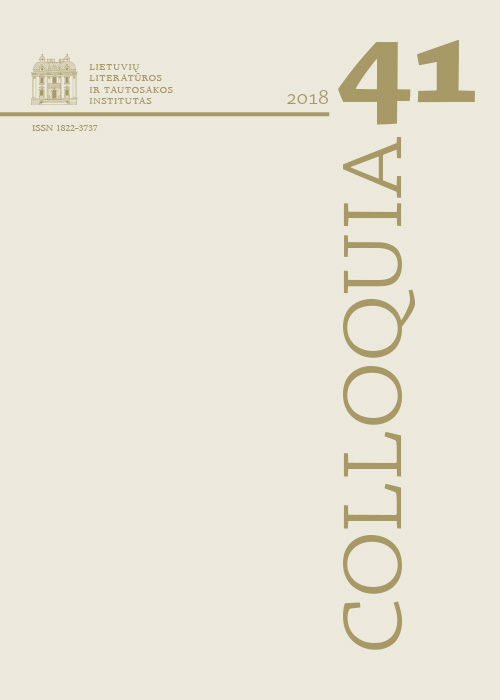Janinos Degutytės poezijos socialumas
Santrauka
Janina Degutytė (1929–1990) į lietuvių literatūros istoriją yra įėjusi kaip poetė, kurios pasaulėvaizdyje vyrauja intymus asmens ir pasaulio, žmogaus ir gamtos santykis, vėlyvojoje poezijoje – asmeninės gyvenimo istorijos sąlygotas dramatizmas. Ar apie tokią asmeninę lyriką galima kalbėti kaip apie socialią, ar įmanoma joje ieškoti poetės kūrybos laiko – sovietmečio – problemų, konfliktų, vaizduotės įspaudo? Postūmiu ir tyrimo teorine atrama tapo Theodoro Adorno straipsnis „Apie lyrinę poeziją ir visuomenę“. Adorno aprašytos lyrinės poezijos socialumo prielaidos laikomos pirmuoju, abstrakčiausiu socialumo sluoksniu. Kiti du Degutytės lyrikos socialumo sluoksniai aptinkami atliekant sociokritinę analizę, lyginant oficialų sovietmečio diskursą ir poetinį tekstą, stebint, kokiais būdais poezija reaguoja į sociolektinę sovietmečio situaciją. Antruoju socialumo sluoksniu laikomi sovietinio diskurso pėdsakai eilėraštyje, trečiuoju – eilėraščio sakymo situacija, kurios pagrindas – intymus kreipimasis į kitą. Sovietmečio skaitytojo ji buvo suvokta kaip alternatyva sovietinei retorikai. Vėlyvojoje poezijoje drauge su dramatiška motinos – dukters santykio refleksija sustiprėja socialinio jautrumo tema, pastanga suteikti balsą visuomenės nebyliesiems.
Atsisiuntimai
Skaitomiausi šio autoriaus(ų) straipsniai
- Dalia Satkauskytė, Šiuolaikinė literatūros kritika: demokratizacijos iššūkiai , Colloquia: T 51 (2023): Colloquia
- Justina Sinkevičiūtė, Virginijus Gasiliūnas, Dalia Satkauskytė, Irena Balčiūnienė, Manfredas Žvirgždas, Giedrė Kazlauskaitė, Šiandieniai Vinco Mykolaičio-Putino vertinimai , Colloquia: T 51 (2023): Colloquia
- Dalia Satkauskytė, Rašytojo biografija kaip (de)kanonizacijos argumentas , Colloquia: T 53 (2024): Colloquia
- Dalia Satkauskytė, Sigito Gedos pyktis ir kiti demonai , Colloquia: T 50 (2022): Colloquia
- Dalia Satkauskytė, Priklausomybė nepriklausomybėje, nepriklausomybė priklausomybėje , Colloquia: T 54 (2024): Colloquia
- Dalia Satkauskytė, Poetikos negalimybė, arba Ezopo kalba semiotikos ir literatūros sociologijos akiratyje , Colloquia: T 36 (2016)
- Dalia Satkauskytė, Asmeninė poezijos istorija , Colloquia: T 40 (2018)
- Dalia Satkauskytė, Apie literatūrą be vietos, arba sėkmės siužetas , Colloquia: T 32 (2014)
